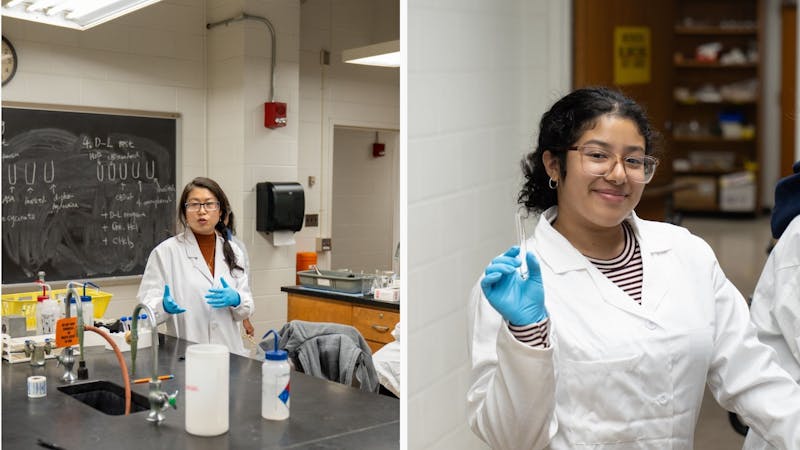Let’s talk frankly about the pap smear. Many college students visit Student Health Services (SHS) asking if they need one. Some are confused about the recommendations and worried about the actual test. It's important to set the record straight and clear up a few misconceptions.
The pap smear is a test that screens a patient for cervical cancer. The leading cause and most important risk factor for cervical cancer is the human papillomavirus (HPV), which is transmitted via contact from an infected person's skin to another person’s body part, in this case, a cervix. If a person has HPV in their vaginal area for a long time, the chance of developing cervical cancer increases.
Patients are only screened for cervical cancer with a pap smear starting at the age of 21 years old. This has been the standard of practice for years. Even if the patient had vaginal sex long before 21 years old, we do not start doing pap smears until that person becomes 21. This is because large population studies of women in the U.S. and abroad has demonstrated that HPV can clear itself away naturally in many teenagers who maintain a healthy lifestyle and a robust immune system. If we did a pap smear on every 17-year-old, we might find a lot of HPV, but, ultimately, the infection might clear itself before the patient developed precancerous cervical changes.
A woman who has sex with other women (WSW) needs a pap smear as well. HPV transmits from intimate, person-to-person contact, which includes genitals, hands, and mouth. WSW need to be screened with a pap smear starting at 21 years old.
Many patients worry that a pap smear exam is going to hurt or be uncomfortable. They should let their healthcare provider know that they are nervous, ask questions about the process and take some deep breaths. If getting a pelvic exam is a trigger for a traumatic experience, they should inform their provider beforehand.
There are ways to improve the chances of having a normal pap smear. First, getting the HPV vaccine is critical. Being vaccinated for HPV means receiving a series of injections to help build up immunity to fight the virus. It is available to women and men ages 9 to 45 years old, and covered by most insurances. It is extremely effective and safe. If unsure whether they had the vaccine as a child, one can check with their parents or pediatrician. Second, wearing condoms or use of dental dams during vaginal, anal, or oral sex reduces the chances of contracting HPV and other sexually transmitted diseases.
If pap smear results are abnormal, providers will have a discuss a plan of action. Most abnormal pap results in young adults need close follow-up with another pap smear. If there are advanced abnormalities, a colposcopy examination may be required.
With any questions or concerns, or to discuss your personal situation, the providers at Student Health Services are here to help. Call us at 908-737-4880 to schedule an appointment.
This article was written by Jackie Leung, MD from Student Health Services.






